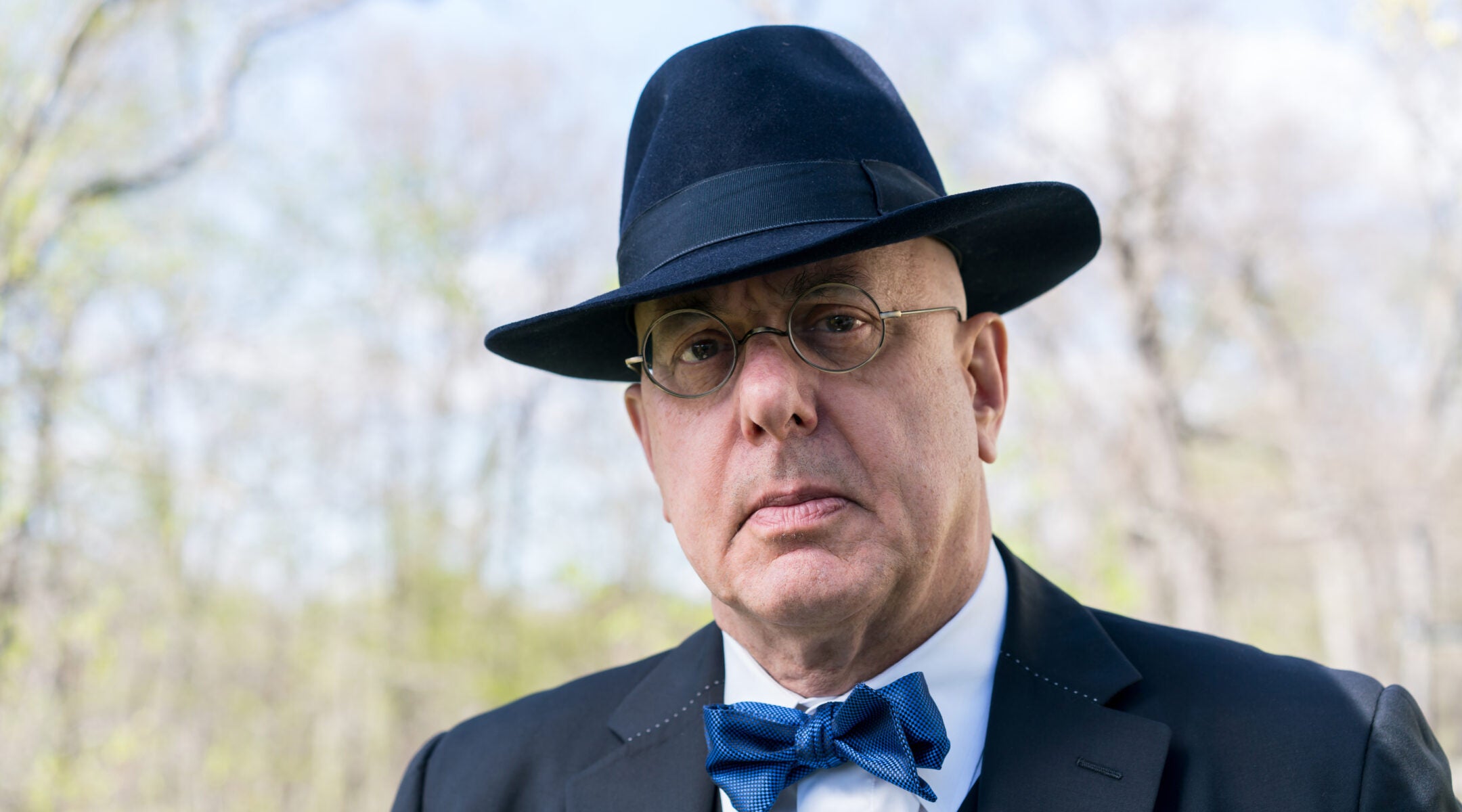NUREMBERG, Germany — Leon Botstein, the president of Bard College for half a century, has seen many crises shake American colleges. But none has stripped schools of their leaders and their students like the present moment.
The second Trump administration has gone to war against elite universities, claiming to root out antisemitism and left-wing indoctrination. In a bid to ideologically reshape academia, the White House has severed billions of dollars in federal funding, attempted to block the enrollment of international students and pushed out college presidents.
University of Virginia President James E. Ryan resigned in June under pressure from the Justice Department over the school’s diversity, equity and inclusion practices, reflecting how the government’s premise of combating antisemitism has turned into a broader onslaught. In March, Columbia University’s interim president Katrina Armstrong stepped down after only seven months in office, amid the school’s concessions to Trump for allegedly tolerating antisemitism.
Before Trump’s return to power, turmoil over the way that schools handled pro-Palestinian protests toppled Armstrong’s predecessor, Minouche Shafik, along with presidents at the University of Pennslvania, Harvard and Cornell. Since he was sworn in, students who participated in those protests have faced government retaliation including high-profile arrests and detention, while hundreds more have had their visas revoked as part of Trump’s vast crackdown on immigrants.
Brown, Columbia and Penn recently cut deals with the Trump administration to free research funding by agreeing to steps like renewing partnerships with Israeli academics, codifying an Israel-related definition of antisemitism and excluding transgender people from athletic programs. Harvard is still embroiled in negotiations, but has already dismantled diversity offices, cut ties with a Palestinian university and adopted ties with Israeli ones, according to the Crimson.
In Botstein’s view, the government’s demands of these schools do the opposite of fighting antisemitism.
“I actually think the government is playing out a classic antisemitic routine,” he said. “Blame it on the Jews — ‘The reason that all the research funding is gone is because of the Jews.’”
In this era of fragile and sometimes conspicuously short-lived college presidencies, Botstein’s 50-year tenure stands out. Born in a ruined Europe in 1946 to Polish-Russian Jews who survived the Holocaust, he arrived in New York in 1949 as a stateless person. He was trained as a historian, musicologist and orchestral conductor, becoming Bard’s president at 29 years old.
He has steadily raised Bard’s national profile and shaped it in the image of his own beliefs — among them, that “the performing and visual arts are not a luxury in a free and democratic society but symptoms of its existence.” He has also forged cultural alliances in Israel and Palestine, directing the Jerusalem Symphony Orchestra for eight years and founding an ongoing partnership between Bard College and Al-Quds University in East Jerusalem.
The Jewish Telegraphic Agency met Botstein during a trip to Germany with The Orchestra Now, or TŌN, a Bard graduate program that he founded and leads as its conductor. We talked just before TŌN’s concert in Nuremberg in early May, when Botstein led a program commemorating the 80th anniversary of Nazi Germany’s surrender.
This conversation with Leon Botstein has been lightly edited for length and clarity.
JTA: You became the president of Bard in 1975. What is the key to such a long and resilient tenure, especially at this moment of upheaval on college campuses across the United States?
Botstein: I never wanted to be a college or university administrator. It never occurred to me, not in a million years. I had a dual ambition: to be a scholar on the intersection between music and history, and to be a performer. And when I entered the job market, there were no jobs.
A career as a conductor is a hazardous business, no matter how you do it, so you have to have a day job. I had friends who were waiters or did office work, and I stumbled on a kind of office work in the New York City government. That’s what led me to be recruited to take over Franconia, a very unusual, bankrupt college in New Hampshire, which was protected by Dartmouth.
The president of Dartmouth was John Kemeny, a Hungarian-born Jewish mathematician. He was a protector of this experimental college that started in the 1960s and had 90 students. They were in bankruptcy in 1970, so they were either going to close or get a new president, and Kemeny talked them into hiring me. So I did it, and it was a lark. I was 23 — what could go wrong?
That led to my being recruited by Bard, which was desperate to find someone because the people they wanted to have as a president turned them down. Bard had an intellectual history from the 19th century. It had a real commitment to the arts and writing, and it had a board that wasn’t alumni-driven. After World War II, it struggled, but it developed a kind of intellectual cache and had a long tradition of hiring emigrés. It was very high-risk, didn’t have an endowment and wasn’t very visible.
I learned a lot from very good business people who were my friends. They told me, if you want to achieve anything of quality, you need two things: You have to have a good idea, and you have to stick to it through thick and thin. When I was in my twenties, I thought, what’s thick and thin? Maybe 10 years. Then 10 years go by, and you realize that you really haven’t gotten started yet — it’s going to need another 10 years. Now you’re 20 years in, and you realize you’ve paved five blocks, but you have to pave another 40 blocks.
What kind of ideas did you decide to stick to?
We took a stand on the liberal arts, on the fact that what you do in college is not the same as graduate school, but much more interdisciplinary.
We took a stand on extending our education to populations that people normally don’t think of. We have the largest prison program. We have 10 early college programs in six cities in the United States. And we have a big international program, including the largest Palestinian-American collaboration. For 16 years, we’ve had a graduate program training teachers for the Palestinian Authority, a high school on the West Bank, and an honors college with Al-Quds University — the war notwithstanding. They’re still going.
So we had ideas, and with ideas came philanthropy. For example, our high schools have been supported by the Gray Foundation. They didn’t go to Bard, but they were motivated very generously by the idea. So I realized that if you lead by ideas and you stick to principles, you won’t please everybody, but you’ll actually achieve something.
I’m an outlier in terms of length of tenure, but I’m not doing the same job as an Ivy League president — and those places wouldn’t hire anybody like me.
Since the start of the Israel-Hamas war in Gaza, presidents at five Ivy League universities have stepped down, some of them after being called into Congress to account for their handling of campus protests and alleged antisemitism. What mistake do you think these presidents made?
They didn’t speak with a voice of authority. People in a university should have the authority of knowledge, principle and the power of language. They should have answered their congressional interrogators and met fire with fire. The best defense is a good offense.
It’s completely preposterous, in my view, to defend the attack on Harvard because you’re fighting antisemitism. There’s nothing more hypocritical than that position. I actually think the government is playing out a classic antisemitic routine. Blame it on the Jews — the reason that all the research funding is gone is because of the Jews.
The fact is that antisemitism has always been a problem. Now Americans have discovered, oh, there’s antisemitism. Well, I’m a European Jew who came as a child to the United States. My parents were survivors of the remnant of Polish-Russian Jews. They landed in the United States with deep gratitude, but they didn’t believe it was a place without antisemitism. I’m not surprised that there’s antisemitism, and the universities didn’t invent it.
The punishment that the president is trying to wreak on these research universities is catastrophic and uncalled for, and has nothing to do with antisemitism. I disagree with many of my fellow American Jews who think this is a good thing. It’s not. We’ve always benefited from the rule of law and the protection of dissent, and not the use of government power to protect us. Spare me.
In Nuremberg, your orchestra is performing a program by Felix Mendelssohn, whose music was banned by the Nazis because of his Jewish heritage. As a conductor, you prioritize music that was repudiated by the politics of the past. Do you feel obligated to speak about the politics of the present?
Absolutely. I don’t believe in ghosts, or the idea of doing something because there is some spiritual remnant of something that happened 80 years ago. There are clearly consequences of what happened 80 years ago, but music and politics intersect today.
When we accepted this invitation, we didn’t really think about what the political situation would be when the concert day arrived. It has changed considerably from what we imagined. We accepted this invitation under the presidency of Joe Biden, when there was a strong affirmation of the alliance between the United States and its former Western Allies in the Second World War, and a real commitment to NATO and to the defense of Ukraine. Now that has all changed.
We have a new president who has no interest in the Atlantic alliance and seems to show nothing but contempt for Europe, and has cozied up to a truly tyrannical autocrat, Vladimir Putin. His violation of the fundamental tenets of American democracy is unprecedented in our lifetime. Our presence here is an affirmation of our determination to fight for the ideals that were fought for 80 years ago — against autocracy, censorship, cruelty, genocide and racist conceptions of the human character.
You founded TŌN in 2015. Over the past 10 years, how have you defined the orchestra’s relationship with history?
The orchestra’s relation to history is one of the central purposes of the orchestra. This orchestra is for musicians who have finished their conservatory training. So this is a three-year program that results in a master’s degree, but part of the purpose is to help musicians figure out how to present music — both old and new music — to the public today.
The classical music industry has drifted ever more strongly into a very narrow “masterpiece syndrome.” That is to say, orchestras, fearing declining audiences, have retreated into playing the very same thing. The Rachmaninoff concertos, Mahler’s symphony over and over again, Beethoven’s symphony over and over again. There’s a limited repertory. Our music history is a giant museum, and only two rooms are open. The rest is all hidden.
So our business is to revive the rich history of our own art form, to perform and record rare repertory in the hopes that people will pick it up in other places around the world. Bard has about 13 operas in full production that are not in the normal opera repertory of any American company. And these are great operas — people are astonished! They are sold out.
How did your parents, and the world of your childhood, influence how you approach music and lead a college?
I remember my naturalization ceremony — I was 10 years old. We developed an unbelievable deep-seated patriotism to the idea of America. America was a kind of promised land, where we as Jews had some measure of equality and opportunity that never existed in Europe. I always felt that I had a civic obligation to make a contribution to the well-being of my fellow citizens. That’s one residue of being an immigrant.
On the music side, there is a psychological and linguistic reason. Like many young children who switched languages, I was a stutterer. I still am a stutterer — it’s a lifelong affliction. I’ve managed to conquer it, but it took me a long time, until my early twenties, and I stuttered in every language. Music seemed natural. It was a communicative system that I didn’t get stuck in. As a result of that, I developed an emotional attachment to making music.
That combined with the experience of being from a family where most of the discussion, and most of the photographs, were of people who were dead. What I discovered by having so many pictures of dead people is that we erase the memory of more people than deserve to be erased — especially in the art form I became interested in.
Music isn’t just Mozart and Beethoven and Brahms and Wagner and Debussy. No! I would go to the library and sit in the stacks and browse, and I saw names I’d never heard of before, and I’d pull out their scores. Partly because of growing up in the family I did, I found myself defending the unfairly forgotten. It definitely had something to do with being part of a family that, through storytelling, kept alive a world that had been obliterated.
JTA has documented Jewish history in real-time for over a century. Keep our journalism strong by joining us in supporting independent, award-winning reporting.







